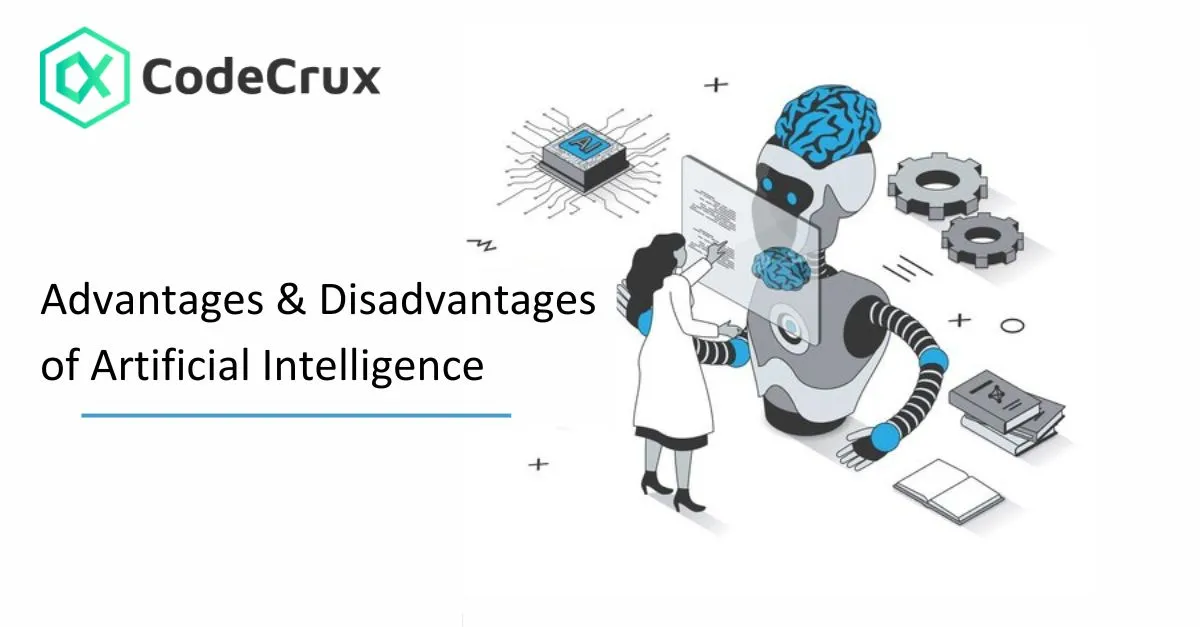Advantages and Disadvantages of Artificial Intelligence

Artificial Intelligence (AI) has made a profound impact on nearly every industry in recent years. From healthcare to manufacturing, AI systems are being adopted to automate processes, improve decision-making, and create innovative solutions. As we integrate AI deeper into our daily lives, it’s essential to consider both the advantages and disadvantages of this powerful technology.
Advantages of Artificial Intelligence
-
Efficiency and Productivity AI can automate repetitive tasks, which increases efficiency and reduces the potential for human error. For instance, AI-driven systems can process large volumes of data faster than any human could, enabling quicker decision-making and optimized operations. This has enormous benefits in industries such as manufacturing, where AI-driven robots can work around the clock, boosting productivity and reducing costs.
-
Accuracy and Precision AI excels at handling complex tasks that require high precision. In fields like healthcare, AI has been used to improve diagnostic accuracy, analyzing medical images or genetic data to identify potential issues faster and with greater accuracy than human doctors. Machine learning models are also used in predictive analytics, offering valuable insights into trends and behaviors.
-
Cost Savings By automating processes, AI can help companies save money in the long run. Whether it’s automating customer support, streamlining supply chains, or improving production processes, businesses can reduce labor costs and improve overall profitability. Additionally, AI-driven predictive maintenance can prevent costly equipment failures in manufacturing or transportation sectors.
-
24/7 Availability Unlike human workers, AI systems do not need breaks, sleep, or vacations. This allows businesses to provide 24/7 service, ensuring that customers can access products or support at any time. For example, AI-powered chatbots can provide immediate assistance to customers even outside of regular business hours.
-
Innovation and Creativity AI has the ability to innovate and create new solutions. It can help researchers and scientists discover new drugs, design cutting-edge materials, and uncover insights in vast datasets. For creative industries, AI tools are being used to generate music, art, and literature, pushing the boundaries of what’s possible and opening up new forms of expression.
Disadvantages of Artificial Intelligence
-
Job Losses and Unemployment One of the most significant concerns surrounding AI is its potential to displace human workers. Automation of tasks traditionally performed by people, such as customer service or administrative duties, could lead to unemployment in certain sectors. While new jobs may be created, the transition could be difficult for workers who need to retrain or adapt to new roles.
-
Bias and Discrimination AI systems are only as good as the data they are trained on. If an AI model is trained on biased data, it may perpetuate or even amplify these biases. In areas like hiring, law enforcement, and healthcare, this could lead to discriminatory outcomes, affecting certain demographic groups unfairly. Addressing AI bias remains a critical challenge in the development of fair and ethical systems.
-
Security Risks AI systems are vulnerable to manipulation and hacking, posing potential security risks. For example, adversarial attacks on machine learning models could make them act unpredictably or be used to bypass security measures. As AI becomes more integrated into critical infrastructure, the consequences of a breach could be catastrophic, affecting everything from power grids to national security.
-
Lack of Emotional Intelligence While AI can excel in logical reasoning and data analysis, it lacks the emotional intelligence and empathy that human beings possess. This can be a limitation in fields like counseling, mental health care, or customer service, where human interaction and understanding are vital. AI may struggle to interpret emotions or provide the personalized support that humans need in certain contexts.
-
Overdependence and Loss of Human Skills As AI takes on more tasks, there is a concern that humans may become overly reliant on it. This could lead to a decline in essential skills, as individuals may stop practicing tasks or critical thinking when AI does the job for them. Overreliance on AI systems without human oversight could also result in errors or breakdowns that would otherwise be caught by a human worker.
Conclusion
Artificial Intelligence has the potential to bring about remarkable advancements in various fields, enhancing efficiency, accuracy, and innovation. However, the disadvantages—such as job displacement, security risks, and bias—highlight the need for careful development, regulation, and ethical consideration in AI systems.
As AI continues to evolve, it is essential for industries, governments, and society as a whole to understand its impact and ensure its responsible integration. Embracing AI’s advantages while mitigating its risks will be key to unlocking its full potential and ensuring that it benefits everyone.